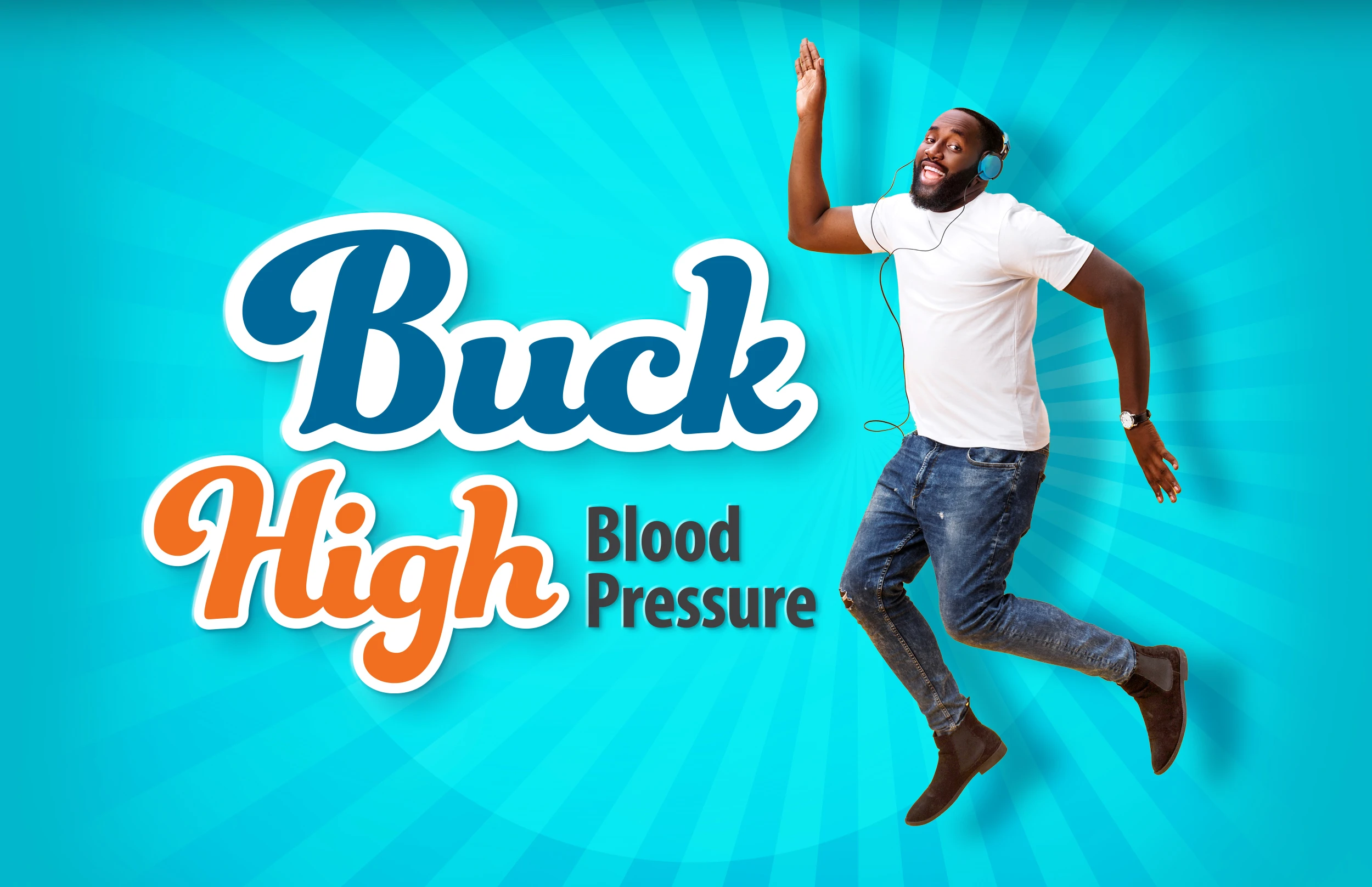
Buck High Blood Pressure
In 1996, hip hop group A Tribe Called Quest released a song called “Stressed Out.” In it, they sing, “Don’t stress that cause it’s not in your bloodstream.” But what if the stress is in your bloodstream – and not just the emotional kind?
Blood pressure plays a crucial role in heart health. Just as your favorite rock song has beats and rests, so does the heart.
Each beat pumps oxygen-rich blood to nourish our organs and tissues. This “crescendo” is your systolic blood pressure or the “top number” on the charts. It indicates how much pressure is exerted against your artery walls when the heart contracts.
But just as every song has its resting moments, so does the heart. Between beats, it pauses, and blood pressure decreases. That diastolic blood pressure reading, or bottom number, indicates how much pressure your blood places on your artery walls while the heart rests. This interlude is vital, allowing the heart to recuperate before its next performance.
Like with any song, problems arise when that performance is off-key. Over time, hypertension forces the heart to work harder, can cause plaque to form in your arteries and causes irregular rhythms.
So today, rock out to your favorite song as hard as you want to. Just make sure your arteries aren’t rock hard, too.

Nearly 47% of American adults suffer from high blood pressure, which can lead to stroke or heart attack when left untreated. But high blood pressure, or hypertension, is often referred to as the “silent killer” because it may show no symptoms. You can lower your risks with lifestyle changes, including decreasing salt and alcohol intake, even though it’s Super Bowl Sunday.

If your blood pressure reading is consistently above 130/80 mm Hg, it’s time to talk to your doctor. High readings may require lifestyle changes or medication. Let your provider know if you have a family history of hypertension or have been experiencing symptoms of high blood pressure, such as severe headaches, chest pain, shortness of breath or dizziness.

If looking at your honey makes your heart skip a beat as Valentine’s Day approaches, don’t worry! The warm and fuzzies you feel are probably oxytocin, a hormone that may play a role in protecting the heart. In our next message, we’ll bring on the romance.